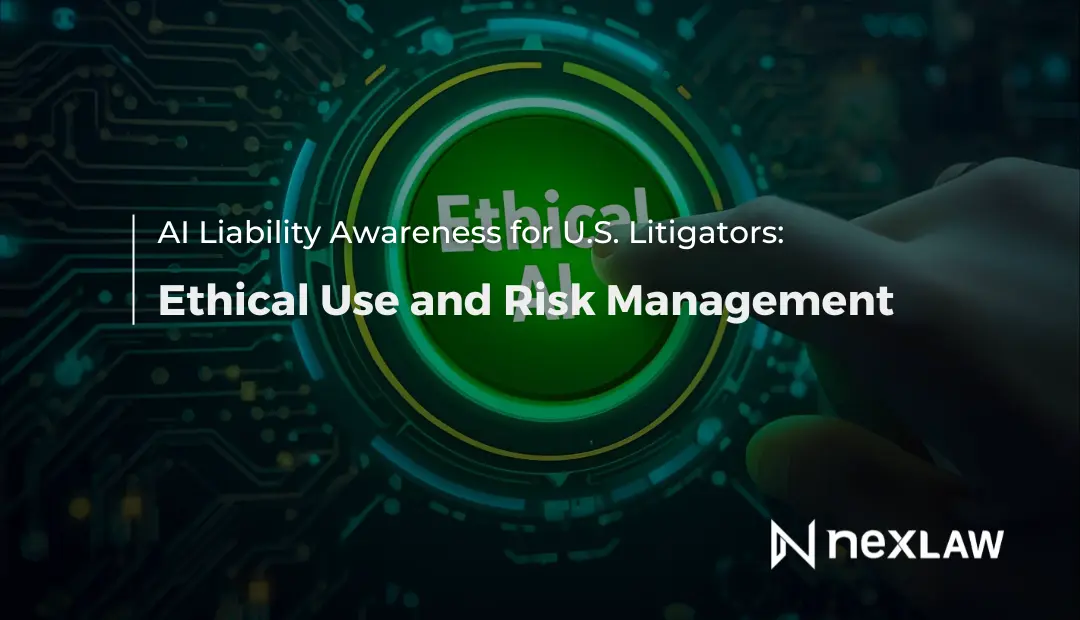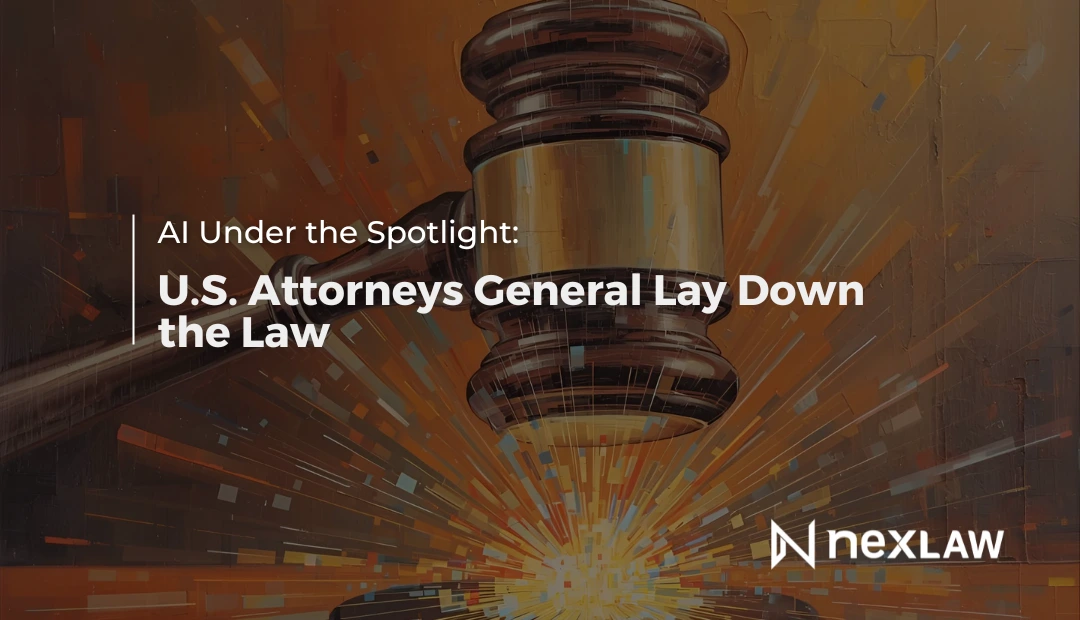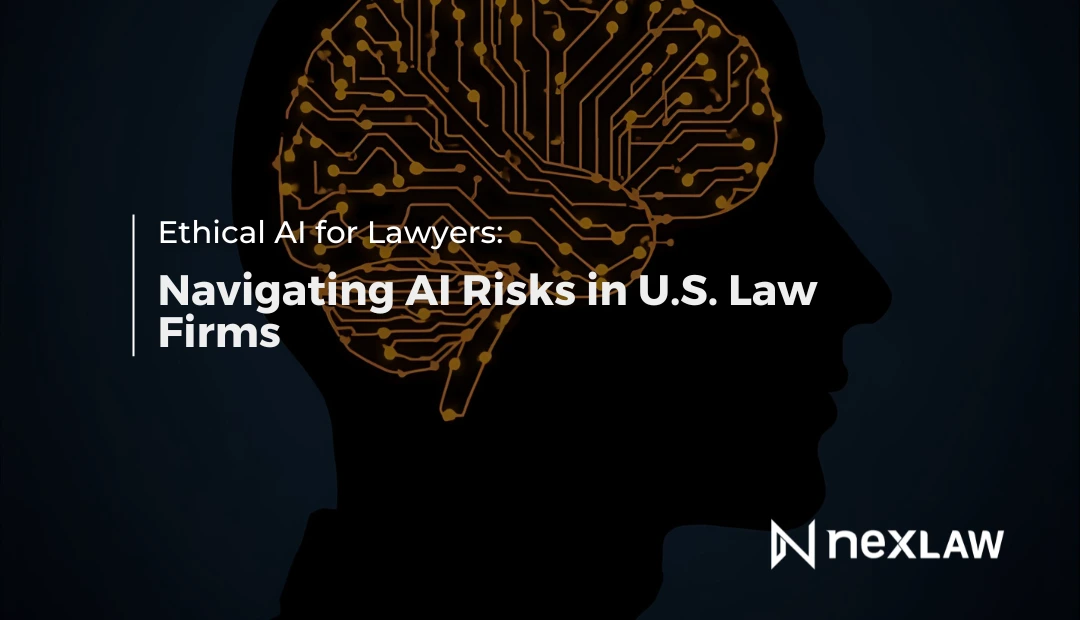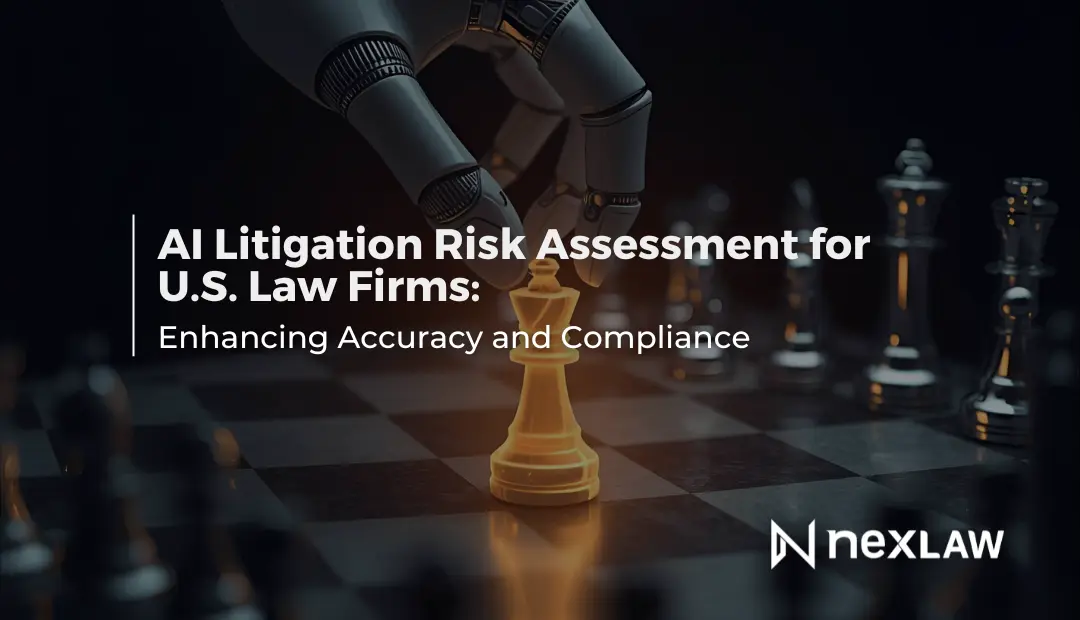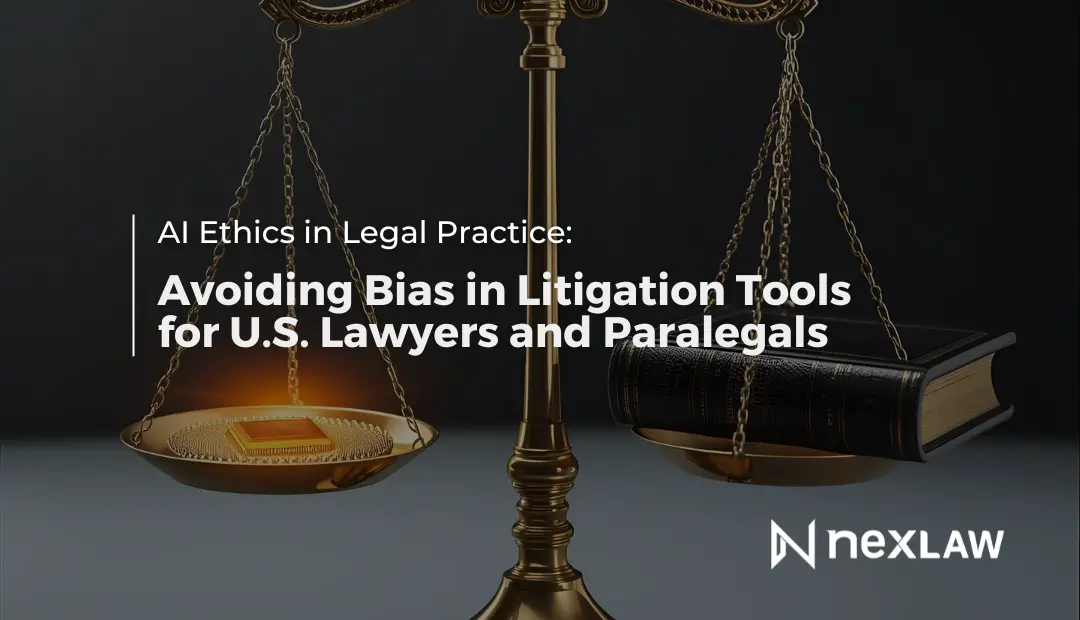AI Liability Awareness for U.S. Litigators: Ethical Use and Risk Management
Artificial Intelligence (AI) is transforming legal practice across the United States. From automating routine document drafting to supporting research and case analysis, AI tools offer significant potential for efficiency, accuracy, and workflow optimization. However, with these opportunities come new responsibilities and potential liability risks for law firms and litigators. Understanding the ethical and operational considerations of AI is critical to protecting clients, maintaining compliance, and upholding professional standards.
Unlock Legal Insights Instantly!
AI is not a replacement for attorney judgment, it is a tool that, when used responsibly, enhances a lawyer’s work. But unchecked or unverified AI outputs can introduce errors, ethical breaches, or even reputational risk. For U.S. litigators, proactive awareness of AI liability is now an essential aspect of modern practice.
Why AI Liability Matters in U.S. Litigation
AI introduces potential liability in multiple ways:
- Errors in Drafting or Research: AI can generate incorrect citations, misinterpret case law, or produce incomplete recommendations if outputs are not verified.
- Bias in AI Recommendations: Systems trained on historical legal data may inadvertently reflect societal or systemic biases, raising fairness and ethical concerns.
- Client Confidentiality Risks: Improper handling of sensitive data through AI platforms could violate professional responsibility obligations.
- Accountability Gaps: Without oversight, it can be unclear who is responsible for errors or omissions generated with AI assistance.
Professional responsibility standards, such as the ABA Model Rules of Professional Conduct, emphasize competence, diligence, and confidentiality. These rules extend to the use of AI: lawyers are accountable for reviewing AI outputs, ensuring accuracy, and preventing harm to clients.
Ethical AI Use: Key Considerations
U.S. litigators should adopt AI with ethics at the forefront. Some core principles include:
- Human Oversight: AI should assist, not replace, attorney judgment. All drafts, analyses, or recommendations generated by AI must undergo thorough review before submission to courts or clients.
- Bias Awareness: Lawyers should recognize that AI outputs can be influenced by biased training data. Reviewing outputs critically and using multiple sources can mitigate risks.
- Confidentiality Safeguards: Protect client information through secure platforms, encryption, and access controls. Avoid sharing sensitive case details with AI tools that do not comply with professional standards.
- Transparency with Clients: Inform clients when AI tools are used and how these tools contribute to research, drafting, or strategy. Transparency fosters trust and meets ethical expectations.
- Documentation: Maintain records of AI usage, including the scope of assistance and human verification steps. This supports accountability in case of disputes or regulatory inquiries.
Risk Management Practices for Law Firms
Adopting AI responsibly requires a combination of technology, workflow design, and professional oversight. Law firms can implement the following practices:
- Select Purpose-Built Platforms: Use AI systems designed specifically for litigation that include features supporting ethical review, secure handling, and auditability.
- Structured Review Processes: Integrate checkpoints where attorneys verify AI outputs before filing or client delivery.
- Regular Audits: Periodically evaluate AI-generated outputs for accuracy, bias, and compliance.
- Training and Education: Ensure attorneys, paralegals, and staff understand AI capabilities, limitations, and professional responsibilities.
- Proactive Monitoring: Stay informed about changes in AI regulations, emerging ethical guidance, and technological best practices.
By combining these measures, firms can leverage AI efficiency without compromising client safety or professional integrity.
AI and Professional Responsibility
AI does not remove the obligation for lawyers to exercise professional judgment. Ethical competence includes:
- Accuracy: Verify AI-generated research, citations, and drafts before use.
- Diligence: Ensure timely and careful review of all AI-assisted work.
- Fairness: Be alert to potential bias in AI outputs, especially when these could impact case outcomes.
- Confidentiality: Maintain control over client data and ensure AI tools comply with privacy standards.
Law firms that integrate AI ethically and diligently can enhance service quality while remaining fully compliant with ABA guidelines and state-level professional standards.
Benefits of Responsible AI Adoption
While the focus is on risk management, ethical AI adoption can also provide strategic advantages:
- Enhanced Efficiency: Automating routine research, drafting, or organizational tasks frees attorneys to focus on higher-value legal strategy.
- Reduced Errors: With structured oversight, AI can reduce human mistakes in repetitive tasks.
- Informed Decision-Making: AI can synthesize large amounts of data quickly, supporting data-driven litigation strategy under attorney supervision.
- Access for Self-Represented Litigants: Guided AI tools can help pro-se clients navigate complex court processes responsibly, expanding access to justice without increasing risk.
These benefits demonstrate that liability-conscious AI is not only a safeguard but a tool that enhances overall practice quality.
Selecting the Right AI Platform
Not all AI solutions are created equal. When evaluating options, law firms should consider:
- Litigation Focus: Ensure the platform supports court filings, motions, discovery, and briefs relevant to U.S. practice.
- Bias Mitigation: Platforms should use diverse datasets and provide transparency into AI decision-making.
- Auditability: Look for detailed logs documenting AI actions and human review steps.
- Security and Compliance: The tool must maintain client confidentiality and comply with applicable ethical standards.
- Human-in-the-Loop Workflows: AI should assist attorneys rather than replace decision-making, preserving accountability.
Platforms that prioritize these elements help minimize liability while maximizing operational benefits.
Integrating AI Safely in Daily Practice
Practical steps for U.S. litigators include:
- Assess Current Workflows: Identify where AI can improve efficiency without creating new risks.
- Pilot AI Tools Carefully: Start with non-critical tasks, observe outputs, and refine review procedures.
- Develop Review Protocols: Require attorney verification of all AI-generated content before filing or client use.
- Maintain Clear Records: Document AI involvement in case files to support accountability.
- Educate Teams: Train attorneys, paralegals, and staff on AI ethics, bias, and risk management practices.
By approaching AI implementation systematically, firms can integrate technology safely while preserving professional and ethical standards.
Conclusion
AI offers tremendous potential to enhance litigation efficiency, accuracy, and client service in U.S. law firms. However, these benefits come with responsibility. Lawyers and law firms must proactively address liability risks, including errors, bias, and confidentiality concerns. Ethical AI adoption grounded in human oversight, transparency, and secure workflows is essential to maintaining compliance, protecting clients, and upholding professional standards.
When implemented responsibly, AI is not a liability, it is a strategic asset. By selecting purpose-built platforms, establishing structured review processes, and emphasizing ethics, U.S. litigators can use AI to enhance efficiency, reduce risk, and deliver better outcomes for clients while staying fully compliant with professional obligations.
Lawyers who embrace AI today are shaping the legal profession of tomorrow. Whether you’re part of a litigation team, a solo attorney, or a paralegal eager to expand your role, NexLaw makes it possible.
NexLaw is designed to help paralegals and attorneys—solo or from small and mid-size—prepare cases more efficiently, with greater accuracy and strategic insight.
Book a Guided Demo — See how NexLaw fits seamlessly into your practice and transforms your workflows.
Start a Free 3-Day Trial — Explore NexLaw risk-free and experience firsthand how AI can enhance efficiency, accuracy, and client satisfaction.
*t&c applied | visit our website for more details
With NexLaw, the future of litigation is here - AI-powered, accurate, and accessible.
